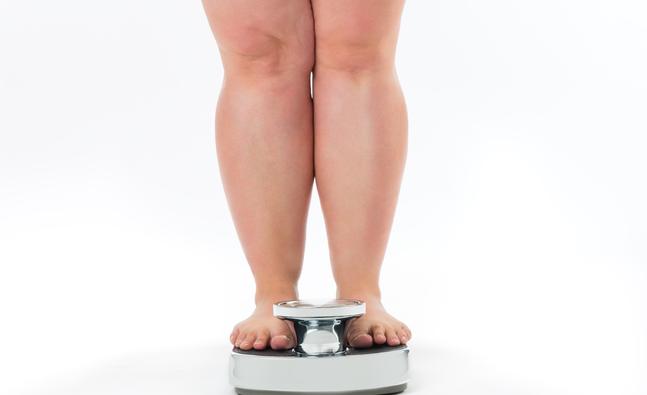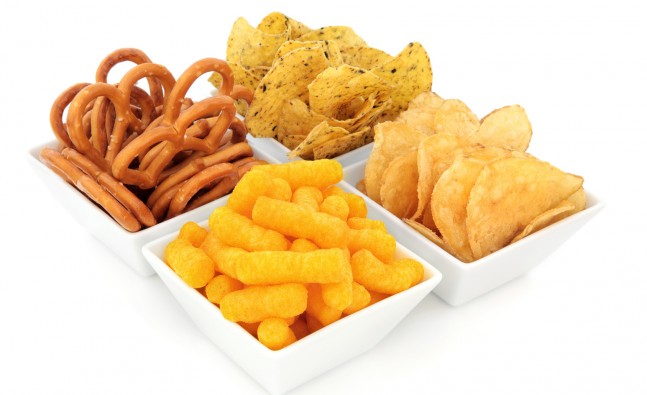Exactly What to Eat for Dinner to Lose the Most Weight
This article was written by Jenny Sugar and repurposed with permission from POPSUGAR Fitness.
Want to know how the last meal of the day can help you drop pounds? We've enlisted the expertise of two nutritionists—Stephanie Clarke, R.D., and Willow Jarosh, R.D., of C&J Nutrition—to share the perfect equation for what to eat for supper to help you lose weight. Follow their advice below to start seeing results.
Calories
Aim for a range between 450 and 550 calories. If you're trying to lose weight, stay closer to 450, and if you're trying to maintain weight, especially if you're working out, shoot closer to 550 calories.
Carbs
About 45 to 55 percent of your dinner calories should be devoted to carbs, which is about 50 to 75 grams of carbs. Don't be afraid to eat carbs at night because you're worried you won't have time to burn them off. As long as you're sticking to your total calorie amount for the day, eating carbs at this meal isn't more likely to cause weight gain. Actually, eating enough carbs at dinner can dissolve those post-dinner carb cravings for sweets and chips.
Protein
About 20 to 25 percent of your dinner calorie amount should be protein, which works out to 25 to 35 grams. Protein is vital to help rebuild and maintain muscle, and since your body does a lot of rebuilding at night, ensuring your dinner includes enough protein is important. Protein also makes you feel satisfied, which is another tool for preventing post-dinner noshing sessions.
Fats
Shoot for about 15 to 25 grams, which is about 30 to 35 percent of your total supper calories. Instead of saturated fats like beef and cheese, go for monounsaturated fats (MUFAs) like olive oil, sesame oil, coconut oil, avocado, olives, and nuts and seeds.
Fiber
To help you reach the recommended daily total of 25 grams per day, aim for at least eight grams at dinnertime. This should be coming primarily from fiber-rich carb choices like whole grains, starchy veggies, beans, small amounts of fruit, and fiber-containing fats such as avocado, nuts, and seeds.
Sugars
Stick to no more than seven grams or fewer of total sugars. And when it comes to added sugar, try not to exceed four grams—that's about one teaspoon of any sweetener used in sauces or dressing.
Timing
Ideally, you should eat dinner about two to three hours after your 3:30 p.m. afternoon snack. If you plan to exercise after work, fuel up with a later-afternoon snack around 4:30 p.m. Then you can exercise at 5:30 p.m. for an hour and eat dinner by 7/7:30 p.m. As mentioned above, don't worry about eating dinner too late. As long as you don't exceed your daily calories, what time you eat won't impact your weight.
Check out some examples of perfect dinners at POPSUGAR Fitness!
-
5 Consequences of unhealthy dieting
-
Watch your waist and avoid heart disease
-
Super spice for weight loss
-
Chewing gum burns calories
-
The 9 Fats You Need to Lose Weight
Sure, you know your saturated and unsaturated fats. And if youve reall
-
The perfect weight-loss pantry: Ah nuts!
- DON'T MISS
- 5 Places that can make you fat!
- 7 Keys to weight loss freedom
- TLC-retailer changes her life...and then her fatherâs!
- Forget fad diets
- Lose the booze and weight!
- A healthier way to eat fries
- Easily cut out 500 calories a day
- Crazy celeb diet “tricks”: The pickle scheme
- 3 Braai day skinny snacks
- Clenbuterol For Weight Loss – How It Works, Benefits And Drawbacks




